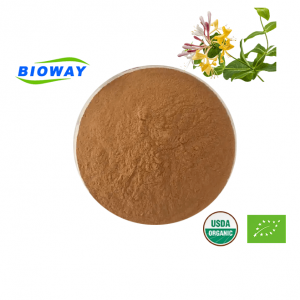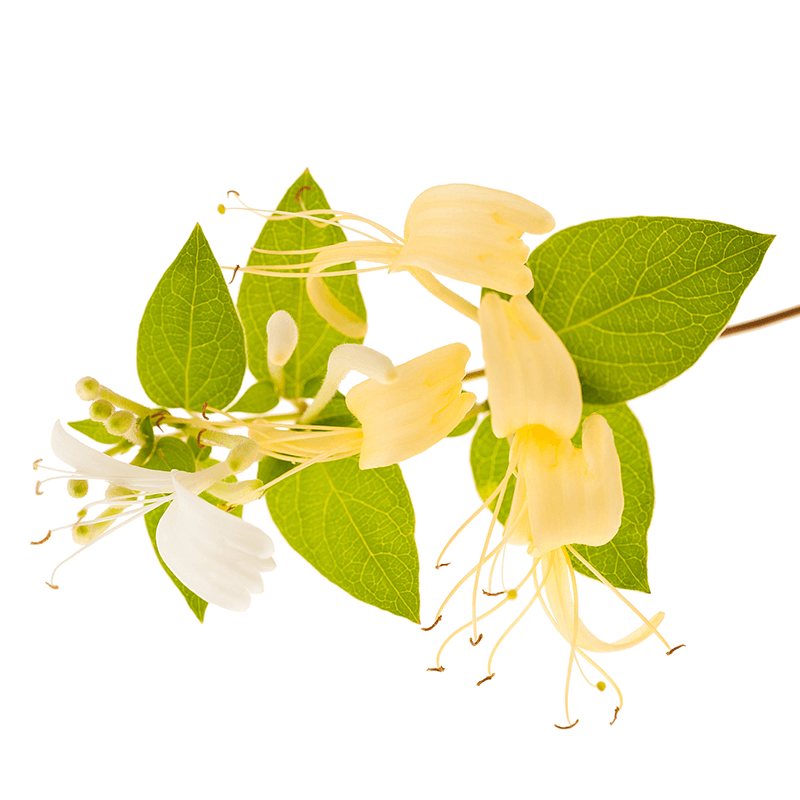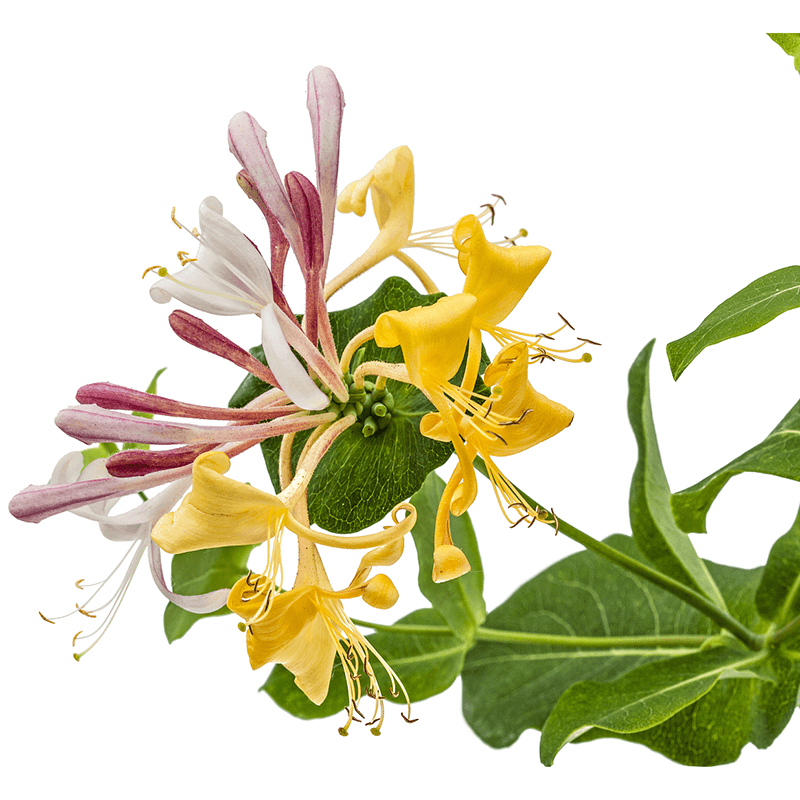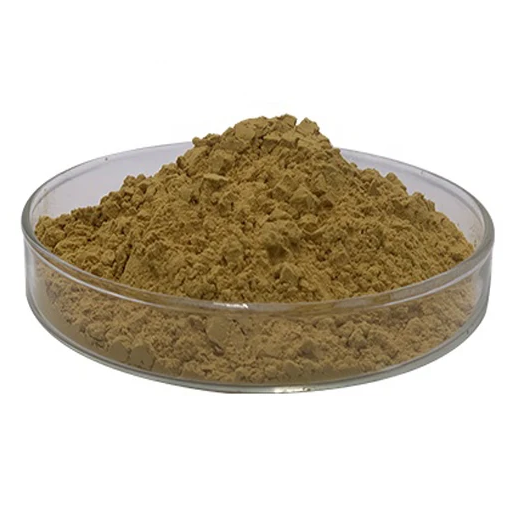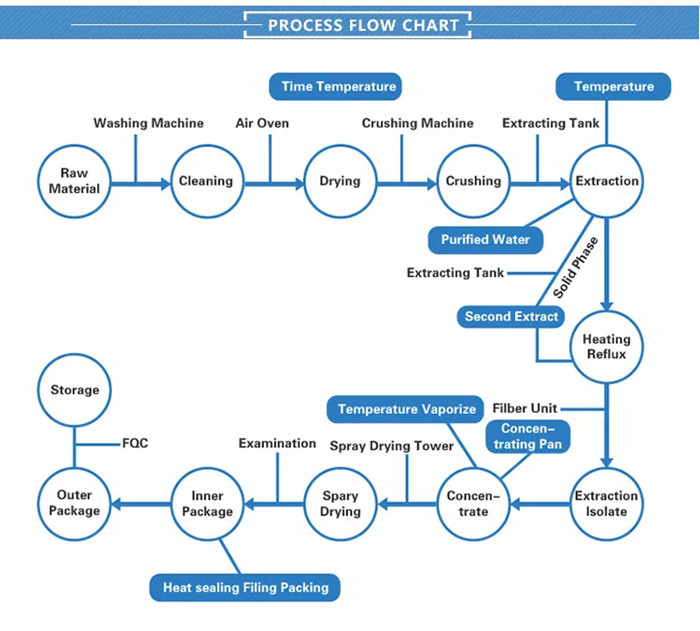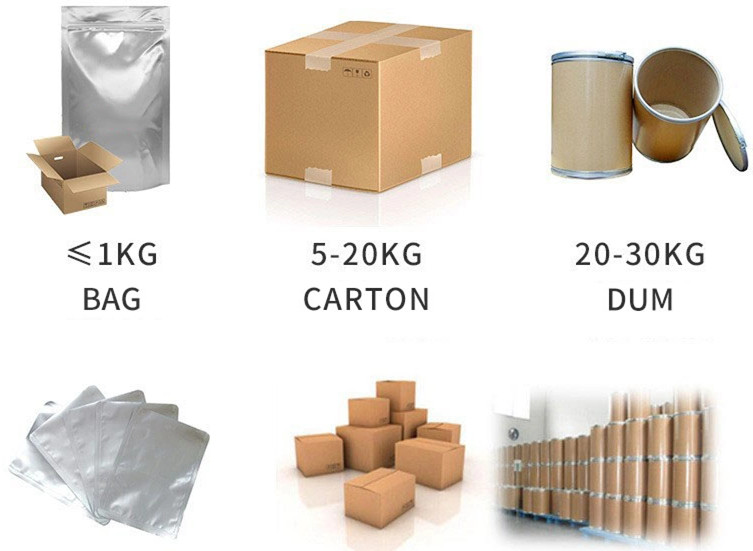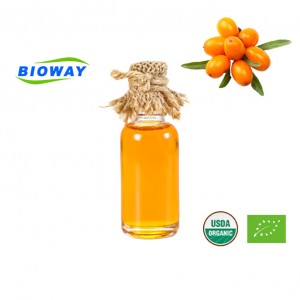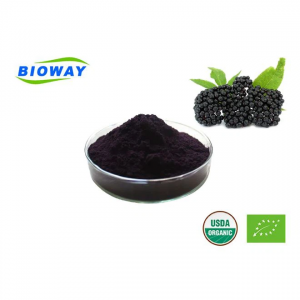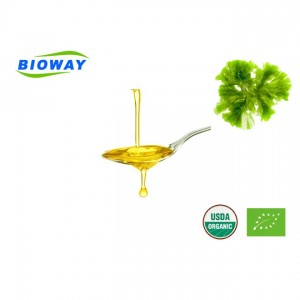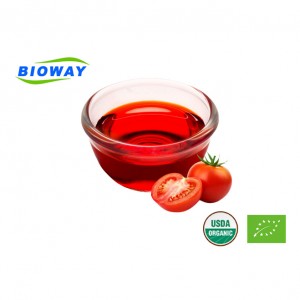Honeysuckle Extract Chlorogenic Acid
Bioway Organic's Honeysuckle extract chlorogenic acid is obtained from the flowers of Lonicera japonica plants. Chlorogenic acid is a type of polyphenol, known for its antioxidant properties. It has been studied for various potential health benefits, including anti-inflammatory and weight loss support.
Chlorogenic acid (CGA) is a natural compound that is made from caffeic acid and quinic acid, and it plays a role in making lignin. Even though the name suggests it has chlorine, it doesn't. The name comes from the Greek words for "light green," referring to the green color it makes when it's exposed to air. Chlorogenic acid and similar compounds can be found in the leaves of Hibiscus sabdariffa, potatoes, and various fruits and flowers. However, the main production sources are the coffee beans and honeysuckle flowers.
| Analysis | Specification | Results |
| Assay(Chlorogenic Acid) | ≥98.0% | 98.05% |
| Physical & Chemical Control | ||
| Identification | Positive | Complies |
| Appearance | White Powder | Complies |
| Odor | Characteristic | Complies |
| Mesh Size | 80 mesh | Complies |
| Loss On Drying | ≤5.0% | 2.27% |
| Methanol | ≤5.0% | 0.024% |
| Ethanol | ≤5.0% | 0.150% |
| Residue on Ignition | ≤3.0% | 1.05% |
| Heavy Metal Testing | ||
| Heavy Metals | <20ppm | Complies |
| As | <2ppm | Complies |
| LEAD(Pb) | < 0.5PPM | 0.22 ppm |
| MERCURY(Hg) | Not detected | Complies |
| CADMIUM | < 1 PPM | 0.25 ppm |
| COPPER | < 1 PPM | 0.32 ppm |
| ARSENIC | < 1 PPM | 0.11 ppm |
| Microbiological | ||
| Total Plate Count | <1000/gMax | Complies |
| Staphylococcus Aurenus | Not Detected | Negative |
| Pseudomonas | Not Detected | Negative |
| Yeast & Mold | <100/gMax | Complies |
| Salmonella | Negative | Negative |
| E. Coli | Negative | Negative |
(1) High Purity: Our Honeysuckle Extract is sourced from premium-quality honeysuckle plants and is standardized to ensure a high concentration of chlorogenic acid, delivering maximum potency and efficacy.
(2) Natural Antioxidant Power: It is known for its strong antioxidant properties, making it an attractive ingredient for formulators of health supplements and skincare products seeking natural antioxidant benefits.
(3) Versatile Applications: It is suitable for use in a wide range of product formulations, including dietary supplements, herbal remedies, skincare products, and functional foods, offering versatility and market adaptability.
(4) Traditional Medicinal Heritage: Honeysuckle has a long history of traditional use, especially in Chinese medicine.
(5) Quality Sourcing and Manufacturing: We ensure the highest quality standards in sourcing and manufacturing to meet the demands of discerning buyers looking for reliable and reputable suppliers of botanical extracts.
(6) Health Benefits: It is associated with a range of potential health benefits, including antioxidant support, anti-inflammatory effects, and possible skincare applications, making it an attractive ingredient for health-conscious consumers.
(7) Regulatory Compliance: It is manufactured in compliance with industry regulations and quality control standards, providing buyers with confidence in its safety and regulatory compliance.
Honeysuckle extract containing chlorogenic acid is believed to offer several potential health benefits, including:
Antioxidant properties: Chlorogenic acid is known for its antioxidant effects, which can help protect cells from oxidative stress and damage caused by free radicals.
Anti-inflammatory effects: Some studies suggest that chlorogenic acid may possess anti-inflammatory properties, which could be beneficial for reducing inflammation in the body.
Potential weight management support: Research has indicated that chlorogenic acid may help in weight management by influencing glucose and fat metabolism, as well as appetite regulation.
Immune system support: Honeysuckle extract chlorogenic acid is considered to have immune-boosting properties that may help support overall immune system health.
Skin health benefits: It may have potential benefits for skin health, such as anti-aging and anti-inflammatory effects.
Honeysuckle extract chlorogenic acid has potential applications in various industries, including:
Food and Beverage: It can be used as a natural ingredient in functional foods and beverages, such as herbal teas, health drinks, and dietary supplements, due to its antioxidant properties and potential health benefits.
Cosmetics and Skincare: It may be utilized in skincare and cosmetic products for its antioxidant and anti-inflammatory effects, such as in anti-aging creams, lotions, and other topical formulations.
Pharmaceutical and Nutraceutical: The pharmaceutical and nutraceutical industries may explore the use of honeysuckle extract with chlorogenic acid as an ingredient in supplements, herbal remedies, and traditional medicines due to its potential immune-boosting and weight management support properties.
Agricultural and Horticultural: It may have applications in agricultural and horticultural industries, such as in natural pesticides and plant growth regulators due to its reported effects on plant health and disease resistance.
Research and Development: The extract may also be of interest to research and development organizations for potential investigations into its health benefits and application in various products and formulations.
Here's a general outline of the production process flow for honeysuckle extract with varying chlorogenic acid concentrations:
Cultivation: Honeysuckle plants are cultivated in suitable agricultural regions following good agricultural practices to ensure quality and yield. This may include soil preparation, planting, irrigation, and pest control measures.
Harvesting: Fully matured honeysuckle plants are harvested at the appropriate time to maximize the content of chlorogenic acid. The harvesting process should be carefully managed to ensure minimal damage to the plants and to preserve the quality of the raw material.
Extraction: The harvested honeysuckle plants are subjected to an extraction process to obtain the active compounds, including chlorogenic acid. Common extraction methods include solvent extraction, such as using aqueous ethanol or other suitable solvents, to obtain a concentrated extract.
Purification: The crude extract is then subjected to purification processes to isolate chlorogenic acid and remove impurities. This may involve techniques such as filtration, centrifugation, and chromatography to achieve the desired purity levels.
Concentration: Following purification, the extract is concentrated to increase the levels of chlorogenic acid to meet the targeted specifications, such as 5%, 15%, 25%, or 98% chlorogenic acid content.
Drying: The concentrated extract is then dried to reduce the moisture content and obtain a stable, dry powder or liquid extract suitable for use in various applications. Drying methods may include spray drying, vacuum drying, or other drying techniques to preserve the quality of the extract.
Quality Control: Throughout the entire production process, quality control measures are implemented to ensure the extract meets the specified criteria for chlorogenic acid content, purity, and other quality parameters. This may involve various analytical techniques, such as HPLC (High-Performance Liquid Chromatography), to verify the content of chlorogenic acid.
Express
Under 100kg, 3-5Days
Door to door service easy to pick up the goods
By Sea
Over300kg, Around 30 Days
Port to port service professional clearance broker needed
By Air
100kg-1000kg, 5-7Days
Airport to airport service professional clearance broker needed

Honeysuckle extract chlorogenic acid is certified by ISO, HALAL, KOSHER, and HACCP certificates.



